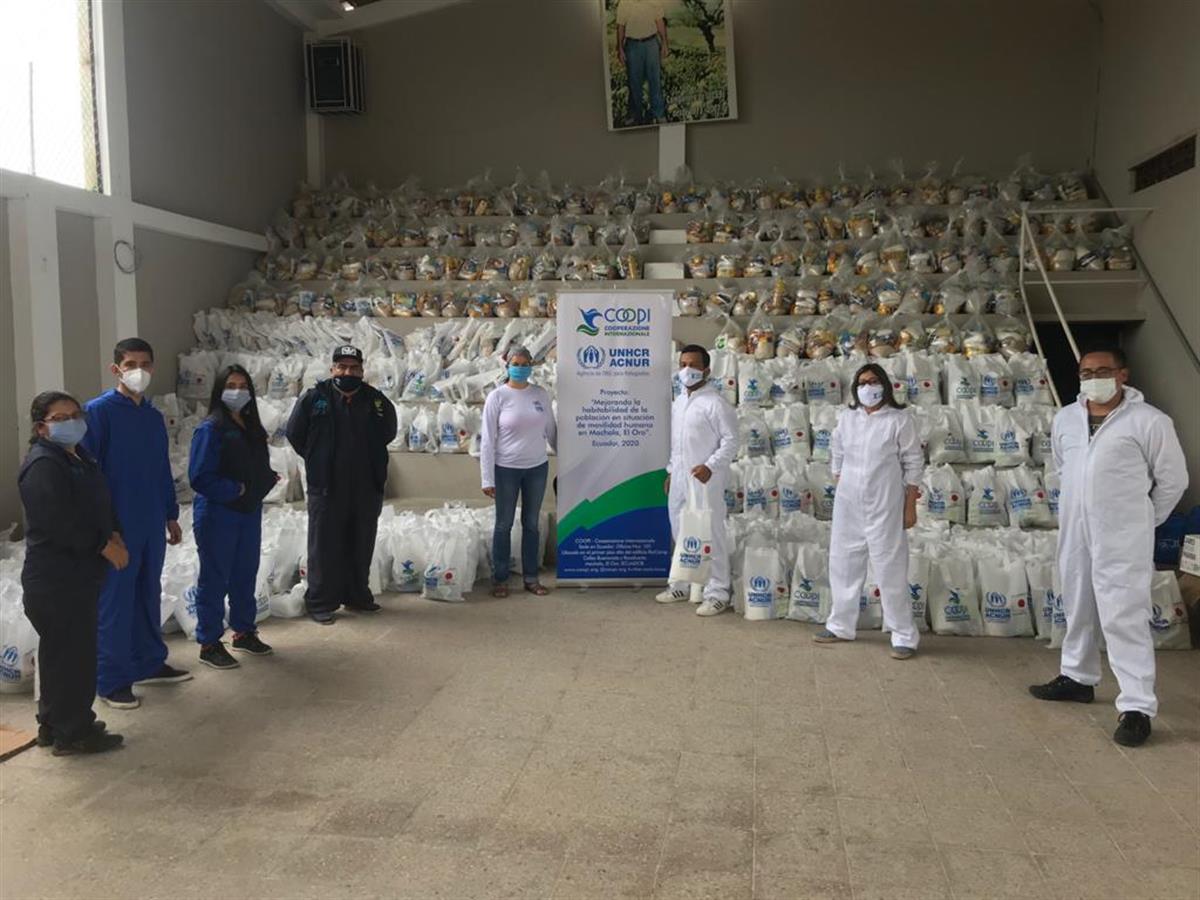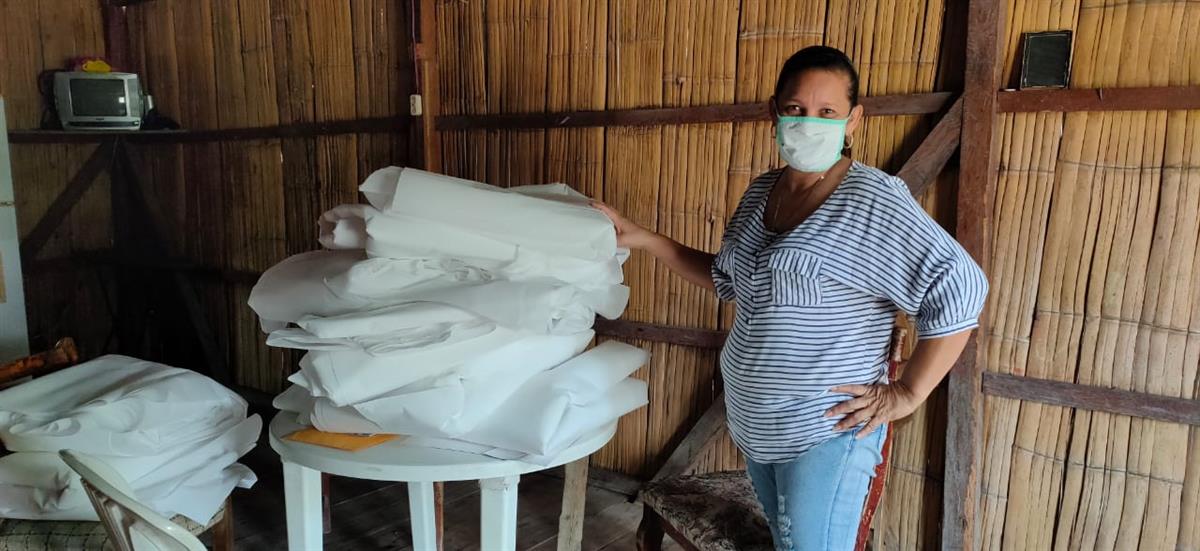"This work was a great help. With the income, we paid part of the rent, and I sent some money to my mother in Venezuela so she can buy medicine and food."
Marilú, a beneficiary of the “Activados” project, implemented by AVSI in the province of Manabí with funding from UNHCR.
According to Ecuador’s Ministry of Foreign Affairs, as of January 2020, the country had already hosted between 400,000 and 500,000 Venezuelans who fled their home country to seek better living conditions elsewhere. Ecuador hosts the third largest number of displaced Venezuelans, after Colombia and Peru. Many work as informal street vendors, and their businesses were hurt by the COVID-19 lockdown measures.
In response, AVSI Ecuador reoriented the UNHCR-funded Activados project, supporting the most vulnerable families by distributing food, clothes, and helping them in case of a health or housing emergency. We also looked for innovative ways to encourage the economic reactivation of Venezuelan migrants and refugees, as well as Ecuadorian families affected by the health emergency. One such way was through emergency business models, like manufacturing face masks and cloth bags. Using an emergency business model, we gave seven families equipment and supplies to start the business, such as sewing machines, fabrics, and other sewing materials. We also accompanied them in organizing production and identifying market channels.
These families sold 2,450 bags for hygiene kit deliveries, generating their first income through this new business. Their first client was COOPI, an international NGO that implements projects near the border with Peru.
“AVSI is doing a tremendous job, the bags were perfect,” praised Jorge Ludeña, Coordinator of the project that COOPI implements in El Oro, Azuay, and Loja. “At COOPI, we seek to help the largest number of vulnerable people, and when we found out about this initiative, we were pleased because it was difficult to find small businesses that make these products. Now we are recommending them to others, and we are placing a new order for approximately 400 cloth bags.”




Marilú belongs to one of the families involved in the activity. She lives in Manta with her husband, daughter, son-in-law, and two grandchildren, two and four years old. They arrived in Ecuador a year ago from Barquisimeto, Lara state. They made 554 cloth bags in 8 days.
“We had to improvise a table made of cardboard and wood to cut the fabric,” remembers Marilú. “We work as a family. Some cut the cloth; some sew, others take care of the children. We have worked together because we want to get ahead as a family. We feel grateful to have been invited to participate in this activity. During the quarantine, we were jobless, and getting any income was very difficult."
Organizations that require an order for cloth bags, masks, or other textile products can contact us through AVSI Ecuador social networks.